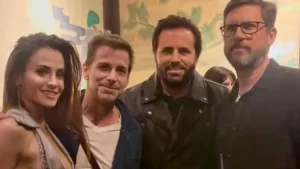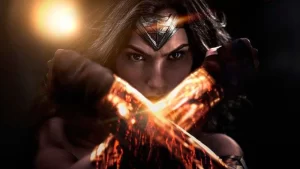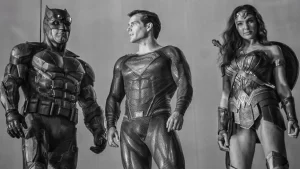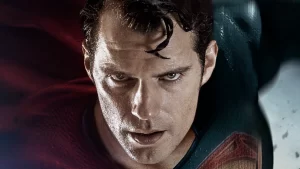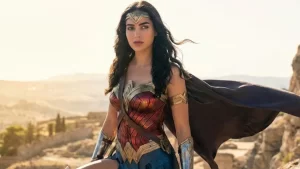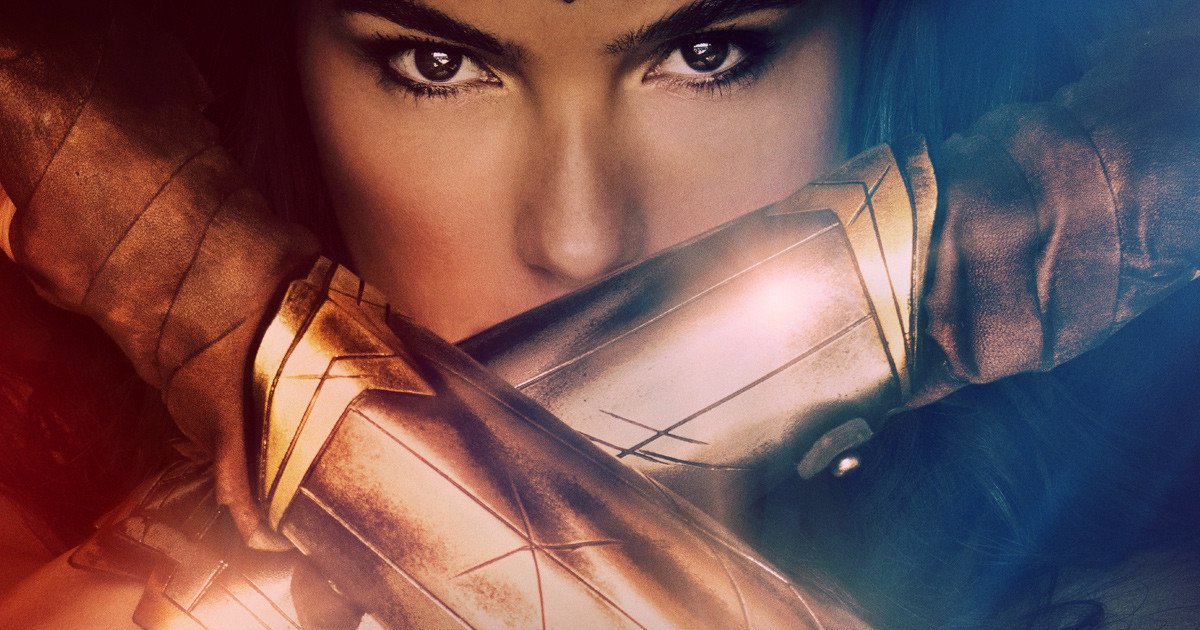
Jenkins v Cameron: Steps Back or Forward?
In an interview posted on Thursday the 24th of August 2017 with Hadley Freeman of The Guardian, James Cameron had some interesting things to say in a puff piece about where he’s been and what he’s moving on to as a director in Hollywood Land. The conversation moved on to his cinematic portrayal of strong female leads which naturally drew a comparison to this summer’s best blockbuster: Wonder Woman.
“All of the self-congratulatory back-patting Hollywood’s been doing over Wonder Woman has been so misguided. She’s an objectified icon, and it’s just male Hollywood doing the same old thing! I’m not saying I didn’t like the movie, but to me, it’s a step backwards. Sarah Connor was not a beauty icon. She was strong, she was troubled, she was a terrible mother, and she earned the respect of the audience through pure grit. And to me, [the benefit of characters like Sarah] is so obvious. I mean, half the audience is female!” – James Cameron
My initial reaction to this kind of comment was utter confusion because he’s actually saying much more in these few sentences than simply calling out Wonder Woman as a film claiming to promote that which Cameron has apparently already tackled.
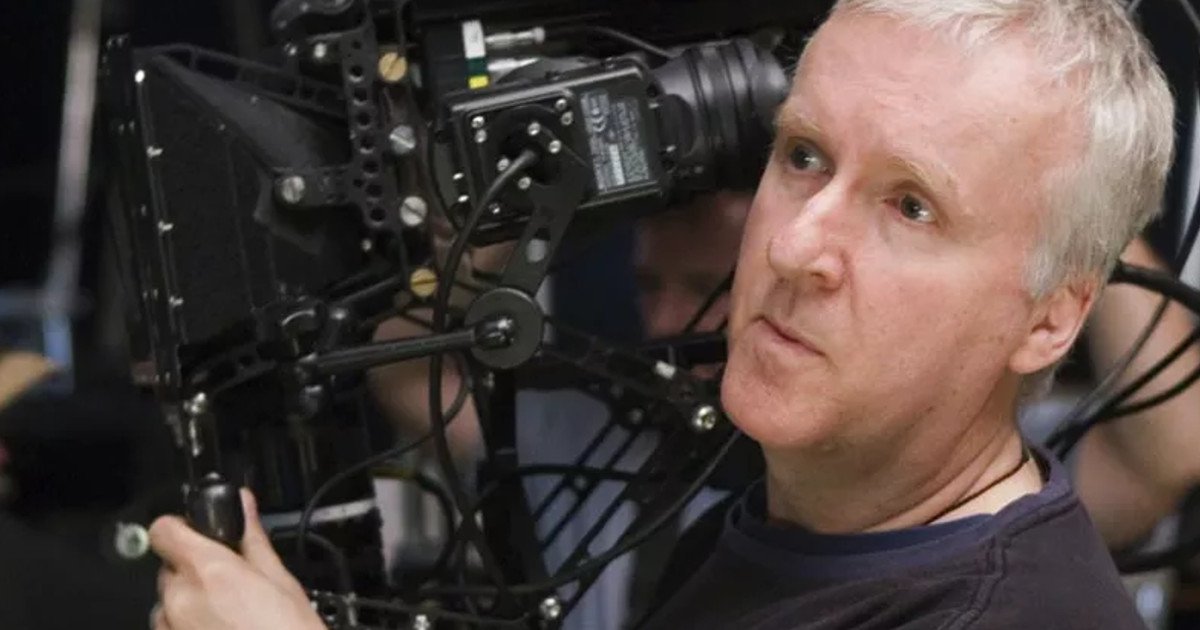
First, Cameron is put off by Hollywood glad-handing itself over the critical and box office “success” of a film for incorrect or less than altruistic reasons. Being a seasoned veteran of the Hollywood game, Cameron doesn’t require this reminder, but everything he said is exactly what the industry has been and will be even after the current studio system changes into its next form. The politics of this business have always dictated making big deals over perceived and actual victories especially in light of recent failures. We know WB’s DC cinematic universe was off to a rocky start between Man of Steel and Batman v Superman and we also know female centric productions have been historically few and far between. Wonder Woman is a film that directly and proficiently addresses both of those issues not just for the corporate conglomerates that have a stake in its success, but also for the audience that pay for the privilege to be entertained in this fashion. Sure, Hollywood is fickle, but that’s the nature of the beast. Who cares how it goes about congratulating itself? This sounds like a tad bit of jealousy about commentary directed towards Wonder Woman that Cameron feels more appropriately ought to be assigned to his films.
Second, Cameron is unimpressed by WW’s objectification and another example of male dominated Hollywood creationism. There may be some merit to this statement in general until the industry sees a more numerical equivalency in producers, directors and leading roles for women, but Cameron is talking about this character in this film. Later on, Cameron brings up the beauty factor in comparing Diana to Sarah Connor so I presume what he meant by “objectification” is male Hollywood casting the female lead with the token babe. Gal Gadot is a beautiful woman and a former model, but she’s also playing a super hero in a super hero film which has a strong tendency for casting overly attractive people in the lead roles because that is how those characters are depicted in the source material. Putting aside the fact that most roles in all Hollywood films are earmarked for beautiful people anyway, Cameron’s comparison between Gadot and Hamilton suggests his own objective gradient for beauty between the actresses. Sarah Connor earned the respect of the audience through pure grit alone, huh? You mean it wasn’t also because she’s a face who once played the role of Beauty in a television adaptation of Beauty and the Beast that lasted for three seasons in the late 80s and got into insane physical shape to play an evolved and fully weaponized Sarah Connor in the sci-fi fight against Sky Net in T2 (arguably Cameron’s best film)? Perhaps Cameron didn’t care for Diana’s overly chesty, sexy, skin revealing presentation that accentuated bimbo tendencies requiring leadership from all her male counterparts to advance the plot in every way. Oh wait. None of that was in Wonder Woman.
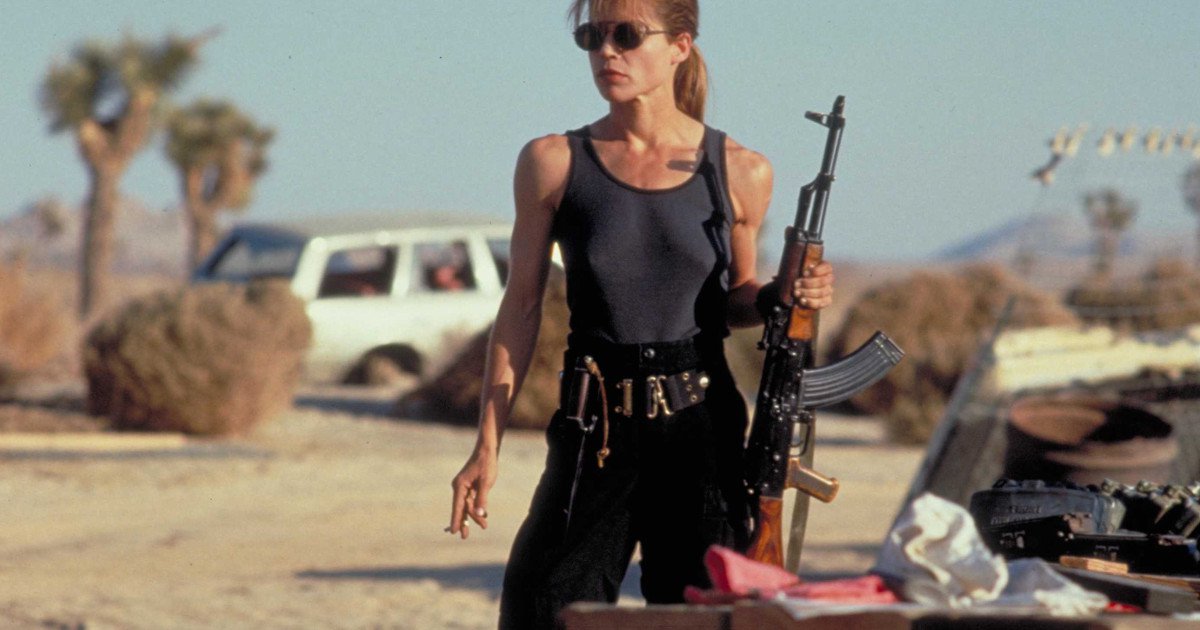
Third, Cameron plainly states that the Wonder Woman film is a step backwards and women who compose half the audience should be expecting more of a film like this. If James Cameron weren’t a Hollywood director, he would certainly excel as a professional politician thanks to his affinity towards non-specifics and generalities. Was Wonder Woman a film that proved a woman playing a female lead failed at portraying a character as interesting, powerful or influential as her male counterparts in their own respective films of the superhero genre? No. Was Wonder Woman a film that exploited the female form through pervasive nudity or exposed women in general as feeble non-participants in one of the grandest conflicts of human history? No. Was Wonder Woman a movie that made women feel devalued as a gender, incapable of inspiration, motivation or hope that they can make their own marks on history as men have? I can’t speak for all women, but I was inspired by Diana. I wish I had her strength of character to do what’s right even if the whole world says it’s wrong on the surface. Did all this girl power turn off critics and audiences making this entire production even more irrelevant to the big picture? No. How, where and at what point does this film “step backwards” in any aspect of the content and context of this production?
Even if one disagrees with all of my examples of how this film does not step backwards in any capacity, that same person would be hard pressed to disagree with director Paul Feig’s (Bridesmaids, Ghostbusters, and Spy) response to Cameron’s statement:
“I wish James Cameron would realize any great leading roles for women are a step forward. Sarah Connor was awesome & so was Wonder Woman.” – Paul Feig
Of course, the director of Wonder Woman, Patty Jenkins, caught wind of the interview herself and had some choice words for Mr. King of the World:
“James Cameron’s inability to understand what Wonder Woman is, or stands for, to women all over the world is unsurprising as, though he is a great filmmaker, he is not a woman. Strong women are great. His praise of my film Monster, and our portrayal of a strong yet damaged woman was so appreciated. But if women have to always be hard, tough and troubled to be strong, and we aren’t free to be multidimensional or celebrate an icon of women everywhere because she is attractive and loving, then we haven’t come very far have we. I believe women can and should be EVERYTHING just like male lead characters should be. There is no right and wrong kind of powerful woman. And the massive female audience who made the film a hit it is, can surely choose and judge their own icons of progress.” – Patty Jenkins
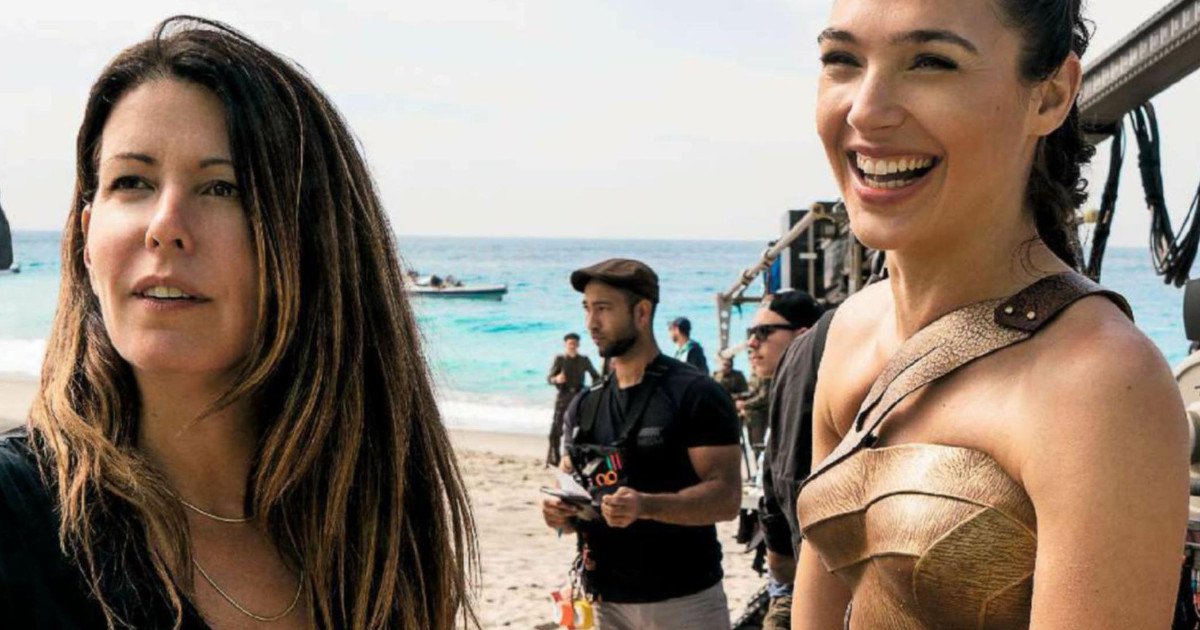
Jenkins is not only right to defend her film, but also right in stating there simply isn’t one way to portray strength on screen as male characters have proven capable of doing so and female characters are getting more opportunities to do the same. Cameron’s comments regarding Wonder Woman are troubling because they reflect the underlying sentiment (or resentment) that drives the male dominated Hollywood manufacturing of female imagery, character and roles: that of the Freudian Madonna-whore complex. This psychology has much to do with the historic limitation of female roles in Hollywood productions and without opportunities to be featured and headlined, they can never be conceived, let alone be evolved into more complex character reflections of reality than “the good girl” or “the bad girl.” On the surface, someone could describe Wonder Woman as Superman with a skirt, but Diana of Themyscira in the Wonder Woman film is a trained warrior (technically a personified weapon) whose dutiful existence is motivated by the preservation of peace and of life. How one uses the art of war and violence to achieve this end is a complexity few fictional characters get to explore, with even fewer failing at and even less still finding redemption from that failure all within the same film.
Nothing looks, sounds or feels good about Cameron’s position on this whole situation. James Cameron certainly doesn’t seem like the progressive vegan and environmentalist in his commentary regarding Wonder Woman. If one didn’t know anything about James Cameron, one could identify this kind of opposite labeling as classic right wing tactics such as labeling the removal of health care from millions of Americans as an improvement to the overall state of health care for the whole country. That being said, is James Cameron really that brash to say what he said?
Yes, but not for the reasons he stated and not for reasons revolving around social justice, gender equality or increased opportunities in the Hollywood landscape. My theory is that it has to do with something far simpler of which he has extensive experience with: himself.
Towards the end of the interview with The Guardian, a very brief mention of Cameron’s most recent success, Avatar, and the next eight years he has committed to making four additional sequels to the original was made and then shelved for his commentary regarding the current Trump administration in the White House. Those comments might be juicier for extracting politically charged conflict, but I am more concerned with the lack of Avatar talk, such as, why have we not seen one sequel in the eight years that have followed the original’s massive, global success? I can understand if Cameron was very tight lipped about all things Avatar (especially to journalists), but this would be a dedicated segment to my interview if I was talking to Cameron about anything. “Yes Mr. Cameron. I understand you have developed a fondness for deep sea filming and excursions. About those Avatar sequels …”
Avatar was released on December 18th, 2009 and the grandiosity of its success extended well beyond geo-political borders, beyond the critics, beyond the box office records, while reintroducing 3D into mainstream cinemas after being dead for years. It changed the Hollywood game in a significant way. Yet, what have we all seen from special effect, action adventure, blockbusters in the years since? We have seen the rise of the superhero genre representing both Marvel and DC featuring a wide range of characters, an R-rated phenomenon and an equally widespread acceptance and fondness for the cinematic universe movement which naturally required a healthy application of computer graphics and visual effects to make these productions a reality. These films have accomplished in a fraction of the time that which James Cameron has been toiling with for much longer regarding his own mega franchise in Avatar: building a self contained fictional universe and I believe he’s revealing a slight amount of envy and resentment over the success of these productions in his commentary regarding Wonder Woman. These films, after all, would be direct competition to similar genre films such as Avatar sequels. Let’s also not forget the resurgence of new Star Wars films and suddenly the realities of an oversaturated market of sci-fi/action/adventure franchises come into focus, especially when cross promotion, marketing and merchandising have significant roles to play with the inception of all these franchises.
Can this all really be ego-driven bitter grapes over Cameron putting his diaper dandy on hiatus to let the other big boys and girls ride out their current wave of success? Here’s some food for thought. IMDB lists the first Avatar sequel as having a release date of December 18th, 2020. It also lists the release of the second part of Infinity War (the supposed end of Marvel’s cinematic universe as we know it currently) in 2019. It also lists Star Wars Episode IX as having a release date in 2019 as well. Looks like some fairly convenient timing wouldn’t you say? If all of this were in a fictional scenario, I would refer to this detail as a plot device so as to avoid direct competition with franchises that have already done impressive things and may be labeled as superior in comparison.
Whatever the reason James Cameron had for calling out Wonder Woman is ultimately his own because his rationale doesn’t mesh with the imagery of the film, nor with the reception of said imagery. Considering the heat he will probably continue to take for this surprising stance, he’s less likely than ever to explain his position more clearly at a future date. But of course, that’s all well and good. James Cameron has every right to feel Wonder Woman, as a film, takes steps backwards in the progression of strong female leads in American cinema. He also has every right to express that sentiment on any forum he deems appropriate. The important thing to note is that none of this necessarily makes him right.


